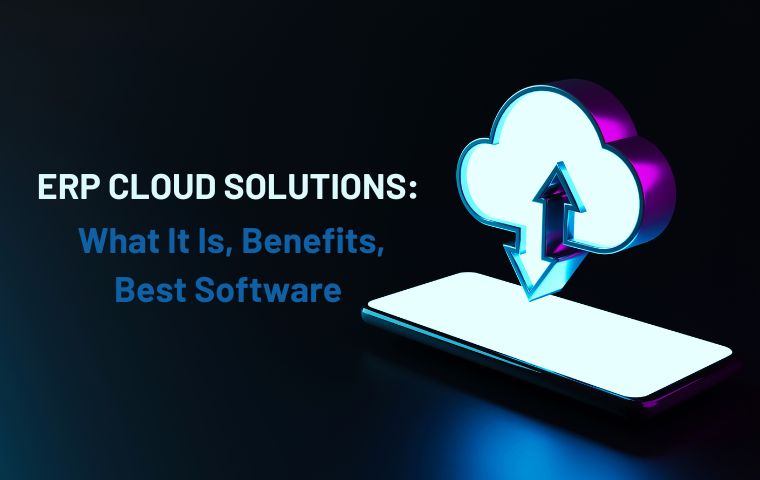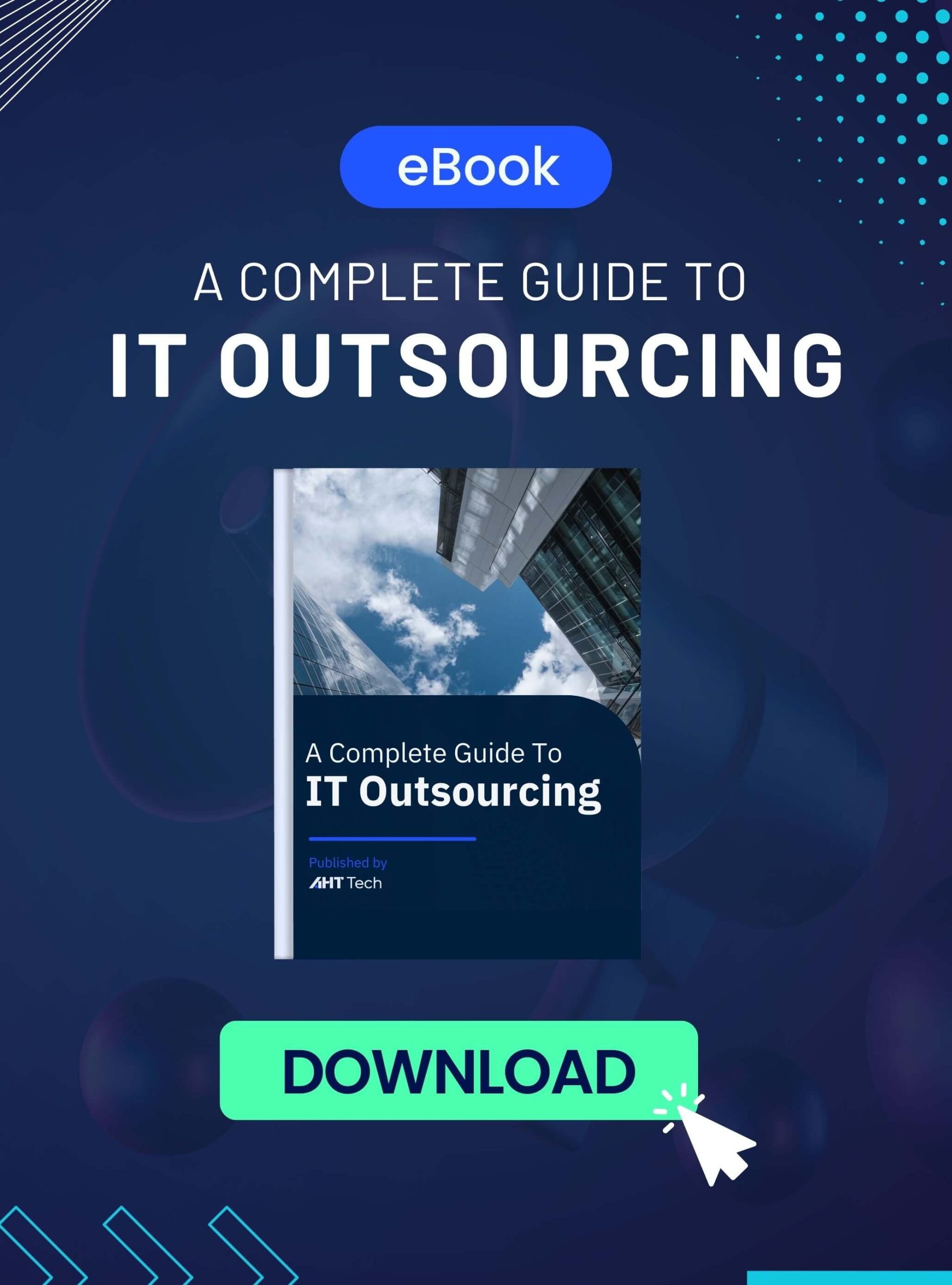TABLE OF CONTENT
What is ERP cloud software?
ERP vs. Cloud ERP
Benefits of ERP In The Cloud
Best ERP Cloud Solutions in 2024
Conclusion
What is ERP cloud software?
Cloud ERP is enterprise resource planning software which is known as a software-as-a-service (SaaS ERP). This means you pay for an annual or monthly subscription basis instead of owning the software. In more detail, your vendor or partner will take responsibility for maintaining, upgrading, storing data, and securing of ERP cloud software without hardware costs. So, you can save a lot of money. ERP cloud solutions allow you to access your ERP ecosystem via Internet-connect devices whether desktop and laptop or mobile devices. Therefore, businesses can access their mission-critical application at any time and anywhere. ERP cloud software is able to access customer information, sales histories, financial data, human resources tools, supply chain status, live operating metrics, and more.
ERP vs. Cloud ERP
The traditional ERP and ERP cloud solutions have several different features, including:
- Features and functionalities: While traditional ERP systems are hosted on-premise which is installed on servers on-site, ERP cloud software runs on cloud platforms via connected Internet. However, it seems that the traditional ERP system is relatively complex to use, so users need to be trained on board. ERP cloud software delivers an easy-to-use and navigated user interface with flexible customizations.
- Implementation and maintenance costs: Generally, businesses need to invest in hardware and software licenses, which waste money. Cloud ERP has lower costs with paid on a monthly or annual basis. Because it is known as a SaaS, you don’t need to invest in a dedicated IT team to maintain or upgrade the ERP system. On the contrary, if you use on-premise ERP systems, you will require a highly skilled in-house IT team to operate them.
- Scalability and flexibility: Designed in an on-premises system, traditional ERP systems tend to limit scale-up or down, which leads to high costs for them. But, cloud-based ERP systems are designed in the cloud, and your ERP vendor can easily customize and scale up if required.
- Security and data management: It is clear that controlling data on-premises creates more drawbacks for managing all businesses. On the other hand, ERP cloud software stores data on remote servers, allowing businesses access and enhancing data security and privacy with accessible management.
Related Article:
Why Should Businesses Integrate ERP For B2C?
Benefits of ERP In The Cloud
Leveraging advanced technologies, ERP cloud solutions have a range of benefits which help businesses reduce overhead and streamline processes. Here is the list of benefits of ERP in the cloud, including
Real-time analytics
Providing real-time analytics on a single dashboard, Cloud ERP allows businesses to see a holistic of available data. No matter what you want to any information, ERP cloud solutions can filter and handle data accurately. Actually, real-time data dramatically affects business decisions. For example, if you’re manufacturing, an ERP cloud system will provide real-time inventory or warehouse with sales analytics to help you control all business operations.
Easy-to-access
One of the benefits of ERP in the cloud is the flexibility of accessing everything remotely at any time as well as nonstop geography. In more detail, businesses can access to ERP cloud systems from any connectible device such desktop, laptop, smartphone, or tablet. Of course, you will not be limited by distance or space. With ERP cloud solutions, you must ensure that your device connects to the Internet or Wi-Fi, so you can gain data interfaces display uniformly.
Scale for every stage of growth
When implementing any advanced technology or system, businesses usually worry about its scalability to adapt if they expand. Fortunately, ERP cloud systems are able to adjust the whole IT infrastructure to all sizes for each stage of development. This enables them to customize and upgrade to meet their needs. Due to the changes, your data will not be lost or leaked out. This ERP systems allow you to migrate data from the existing system to the new one seamlessly.
Fewer technical requirements
Another benefit of ERP in the cloud is cost-saving with no additional expense for network hardware. As mentioned above, you just pay for a subscription basis with the plans you need. Therefore, businesses can eliminate the demands of resources, hardware repairs, and software upgrades. As a result, you can easily and affordably operate the whole of business.
Enhanced productivity
Leveraging a cloud-based ERP can boost productivity tenfold. From nonstop accessibility to the flexibility of scaling and security, ERP cloud solutions bring businesses chances to move the future with powerful infrastructure. By eliminating human errors and manual tasks, businesses can increase efficiency in all processes. Moreover, ERP cloud systems also allow authorized personnel to work and collaborate together on projects at any time.
Best ERP Cloud Solutions in 2024
NetSuite
Known as one of the ERP cloud solutions, NetSuite provides extensive tools for any company size including financial management, order and billing management, procurement, production, warehouse, fulfillment, and supply chain management. NetSuite also allows businesses to integrate this ERP system with third-party systems to operate the business at an optimum flow. Like other SaaS models, you just pay a subscription fee to use the system without additional infrastructure or maintenance costs. Additionally, NetSuite allows businesses to access the system any time and anywhere within conntected-Internet devices. Therefore, no matter where you are, you can track business performance and receive alerts in real-time.
Acumatica
Acumatica is designed for SMEs with an intuitive interface and a complete set of tools. This enables to management of business processes effectively. You don’t need to invest in IT infrastructure for implementing Acumatica, it delivers the essential infrastructure efficiently and flexibly. Cloud-based Acumatica delivers a comprehensive suite of solutions for accounting, project accounting, CRM, payroll, financial management, and much more. Moreover, it provides mobile tools for service workers to interact in real-time as well as handle queries and alerts on time.
Odoo
Odoo is an open-source, cloud-based platform, used company-wide for business management. With a range of Odoo apps, businesses can integrate seamlessly with the ERP cloud system and other systems to centralized manage. This brings to various functional businesses like CRM, sales modules, purchase, payment, invoicing, POS, eCommerce, etc…Similar to one of the ERP cloud solutions, Odoo is available with SaaS subscription plans, allowing businesses to choose the niche plan with their requirements.
Conclusion
There is no doubt that ERP cloud solutions become increasingly important for businesses to manage business operations more efficiently and effectively. Many businesses realize the limitations of traditional ERP, so they tend to supplant the system like ERP cloud software with various advanced benefits. Cloud-based ERP systems are affordable, scalable, and flexible for implementing, managing, and maintaining. Businesses almost waste additional costs for ERP cloud systems except for subscription fees. This article also suggests several ERP cloud systems that you can consider to choose the suitable system for your business. If you don’t know how to choose the niche one, you can contact AHT Tech!



